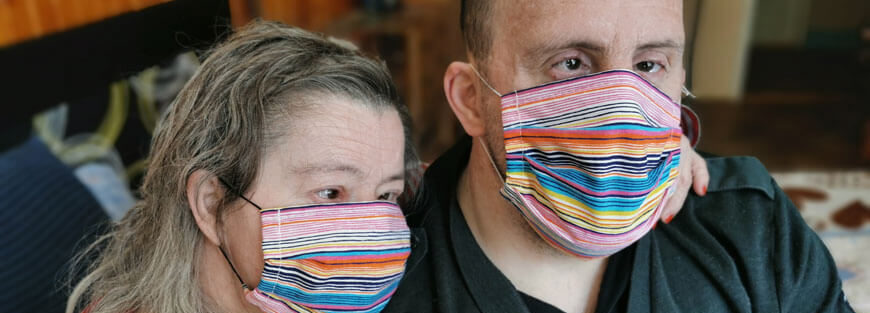A year after it began, people with disabilities still experience the Covid-19 pandemic differently than most. Through these experiences, we have learned a lot about ourselves and our true place in society.
Even before Covid-19 was declared a global pandemic in March 2020, disabled and chronically ill people knew that we were in a unique position, entangled in a web of medical and social factors. Many of us were and still are at higher risk from Covid-19 because of our underlying medical conditions, as well as the secondary effects of our disability-related practical circumstances and status in society as disabled people. At the same time, many of the pandemic’s hardships were already familiar to us. While we were at higher risk, it sometimes felt like we were better equipped to handle the pandemic than people without disabilities. People with disabilities have disproportionately suffered from Covid-19 over the last year. For instance, we know what it’s like to need help with some of the simplest everyday tasks, well before others are introduced to the experience through illness, accident, or aging. And many of us sense the weaknesses in standard emergency planning well before disasters happen. While each of us clearly is responsible for key aspects of our own health, there is such a thing as public health. Some health threats can’t be fought individually. They require a cooperative approach. But apparently people are only willing to sacrifice up to a point to protect elderly and disabled people. Throughout the pandemic, we watched non-disabled people forced to cope with restrictions, adjustments, and practices that many disabled people have always had to live with. Many of us have always been physically restricted, due to lack of mobility aids and poor transportation. Lots of us have always had to work twice as hard to shop for groceries, get to doctor’s appointments, or socialize with friends. Working from home has always been a lifeline for some of us, and for others with disabilities an option we were all too often not allowed to choose before it became standard practice during the pandemic.


